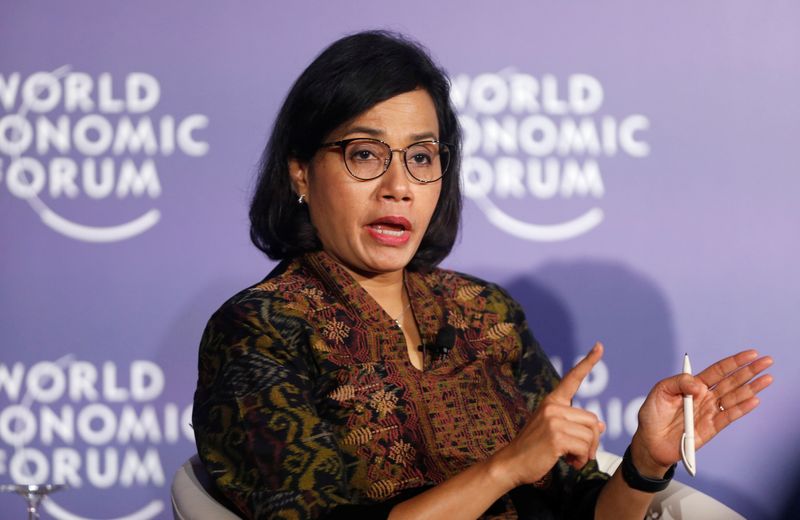JAKARTA (Reuters) – Indonesia’s parliament passed an emergency regulation on Tuesday backing a plan by President Joko Widodo’s government to spend at least $25 billion to tackle the coronavirus pandemic and its impact on the economy.
The regulation allows a three-year waiver of a deficit ceiling of 3% of GDP in every fiscal year, which Finance Minister Sri Mulyani Indrawati has said gives the administration room for the spending and more stimulus in 2021 and 2022.
Parliament speaker Puan Maharani said all but one of Indonesia’s political parties had voted in favour of the regulation, which required parliamentary approval although it had taken effect immediately after being issued in late March.
It was an “extraordinary measure to save the people and the economy” amid the rapid spread of the virus, Indrawati told parliament after the vote.
Widodo’s governing coalition controls nearly three quarters of the seats in parliament.
Southeast Asia’s largest economy has a tally of 14,749 virus infections with 1,007 deaths. The government has forecast a fiscal deficit of 5.07% of GDP for this year, wider than an original figure of 1.76%.
Earlier on Tuesday, Indrawati proposed a 2021 fiscal deficit of 3.21% to 4.17% to parliament, with the aim of supporting economic recovery after the pandemic ends.
The regulation also backs a cut in corporate tax and sets out a new protocol for financial crisis management.
The Constitutional Court is hearing several petitions seeking judicial review of the regulation, on grounds that it hands too much power to the executive branch as there is no immediate urgency.
(Reporting by Tabita Diela and Gayatri Suroyo; Editing by Clarence Fernandez)



















